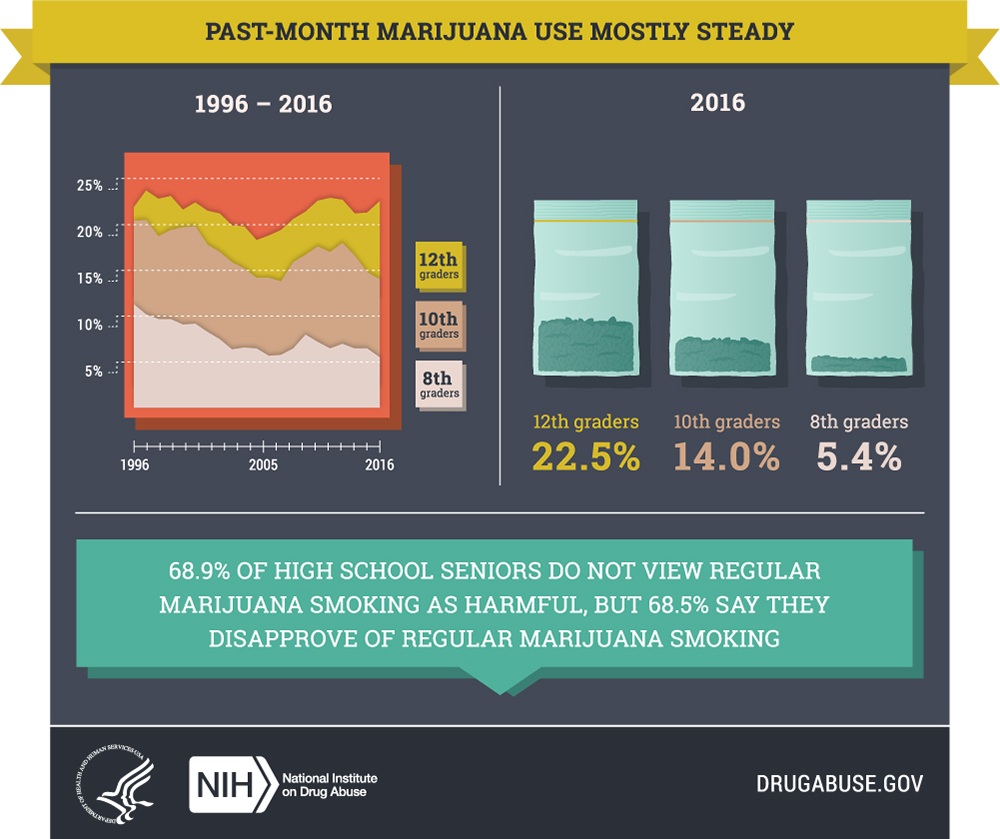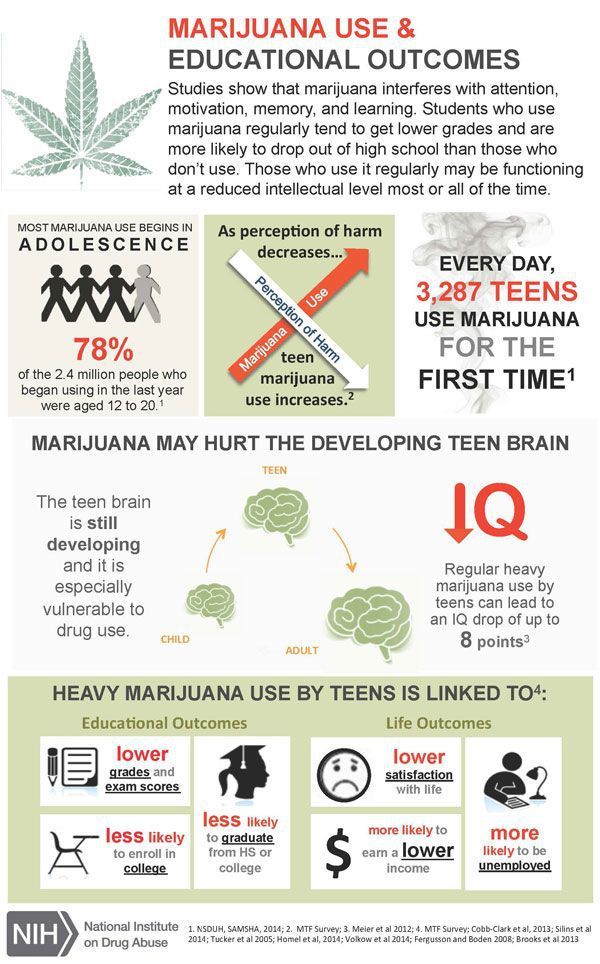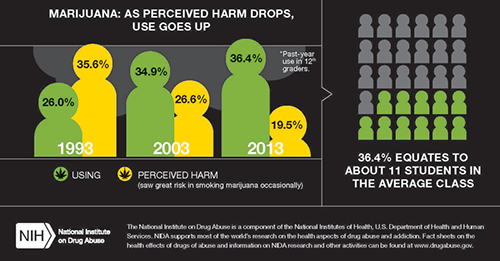Marijuana
Marijuana Use Among Paterson Youth—What You Need To Know
There is no doubt that marijuana is more accepted and accessible than ever. In fact, The Centers for Disease Control & Prevention reports that marijuana is now the most commonly used drug among teenagers and adolescents in the United States. In New Jersey, 39% of high school aged youth have used marijuana (YRBS, 2015).
But what about Paterson’s youth? What do the statistics say about our teens?
According to data collected by P-CASA:
- 25% of Paterson youth have admitted to using marijuana in the past 30 days—this is higher than both our county and state averages.
- 45% of Paterson youth said it was very easy or sort of easy access to get marijuana compared to other drugs.
- 27% of Paterson youth individually perceive marijuana usage to be of no risk at all to their health.
The Downside of Marijuana
“These statistics are alarming because marijuana usage can be extremely harmful to the developing brain of an adolescent,” said to Dr. Robert J. Reid. “Unlike adults, the adolescent brain is actively developing and is not fully developed until their mid-20s.”
Recent research has shown that marijuana usage has been associated with:
- Increased memory loss
- Mental health problems such as depression or anxiety
- Heart disease
- Stroke
- Cancer
 Marijuana can also affect judgment and decision making.
Marijuana can also affect judgment and decision making.
“Marijuana usage can cause teens to do things they might not normally do such as engaging in risky sexual behavior, which can result in being exposed to sexually transmitted diseases, like HIV, the virus that causes AIDS,” said a P-CASA Coalition Member. “It has also been associated with a decrease in school performance in youth.”
Youth that smoke marijuana may be exposing themselves to additional harmful chemicals that can be included in marijuana without their knowledge (also known as “laced weed”). Ingredients such as PCP, “angel dust”, or embalming fluid are often included in marijuana. The additions of these types of ingredients can lead to increased morbidity, drug induced psychosis, brain damage, or death.
States that have legalized marijuana such as Colorado have reported an increase in marijuana related arrests among youth since legalization. A majority of those arrests are of youth of color, which is evident in racial disparities in police arrests and sentencing rates that often target this vulnerable group. Furthermore, youth of color in states that have legalized marijuana have had higher suspension rates in school related to marijuana usage.

IS MARIJUANA LEGAL IN NJ?
Legalization of marijuana in certain states gives youth and adults the misinformed perception that marijuana is safe and harmless when, in fact, it is not. It is important to keep in mind that marijuana is illegal federally and is classified as a scheduled 1 substance.
Currently, recreational marijuana is not legal in New Jersey, but legislation has been introduced at the state level to legalize recreational use. It is approved for medical use in NJ.
THE FACTS ABOUT Synthetic Marijuana
K2 or “spice” has emerged as a popular legal alternative to marijuana among adolescents and young adults.
- K2 refers to a series of products that are legally sold as herbal blend incense. Individuals smoke K2 or “spice” to obtain a similar effect to marijuana.
- K2 is most likely not to be detected in typical urine drug screenings, making it an ideal choice for adolescents and young adults.
- K2 is associated with drug induced psychosis, elevated heart rate and high blood pressure, hallucinations, cardiac arrest, and suicide attempts.
- K2 is an extremely dangerous substance and rates of usage have risen dramatically in the past decade.
According to the American Association of Poison Control Center, more than 2,500 calls related to K2 have been reported in 2010; 3,862 in 2014; and 7,794 in 2015, with numbers continuing to rise annually. Between 2010 and 2011 the number of synthetic marijuana exposures reported in New Jersey increased to an alarming 711%.
P-CASA is working to build a better Paterson.
To that end, we are taking the following steps to help decrease the amount of marijuana consumed by Paterson adolescents:
- Creating a public health framework that can inform policy relating to the legalization of marijuana in New Jersey.
- Developing social media marketing and education campaigns that inform and educate the community on the impact of marijuana use in youth.
- Examining existing city ordinances that include penalties for the sale of synthetic marijuana (K2/Spice, G13), which seems to be a growing trend in the city of Paterson.
To learn more marijuana and teens visit Marijuana Policy.
References:
- Centers for Disease Control and Prevention. (2017) Marijuana Fact Sheet. https://www.cdc.gov/marijuana/factsheets/teens.htm
- Centers for Disease Control and Prevention (CDC), High School Youth Risk Behavior Survey Data. 2016 [cited 2016 November 16, 2016]; Available from: http://nccd.cdc.gov/youthonline/.
- Centers for Substance Abuse Research. (2013).Marijuana. University of Maryland. http://www.cesar.umd.edu/cesar/drugs/marijuana.asp
- Xingdi, H., Primack, B. A., Barnett, T. E., Cook, R. L., & Hu, X. (2011). College students and use of K2: an emerging drug of abuse in young persons. Substance Abuse Treatment, Prevention & Policy, 616-19. doi:10.1186/1747-597X-6-16
- Marijuana legalization in Colorado.: Early Findings (2016). https://cdpsdocs.state.co.us/ors/docs/reports/2016-SB13-283-Rpt.pdf
- Division of Consumer Affairs Issues Comprehensive, Statewide Ban on Synthetic Marijuana, Building on New Jersey’s Fight Against Dangerous Designer Drugs .http://www.nj.gov/oag/newsreleases12/pr20120229a.html
- Synthetic Cannabinoids. American Association of Poison Control Centers (2017). http://www.aapcc.org/alerts/synthetic-cannabinoids/

